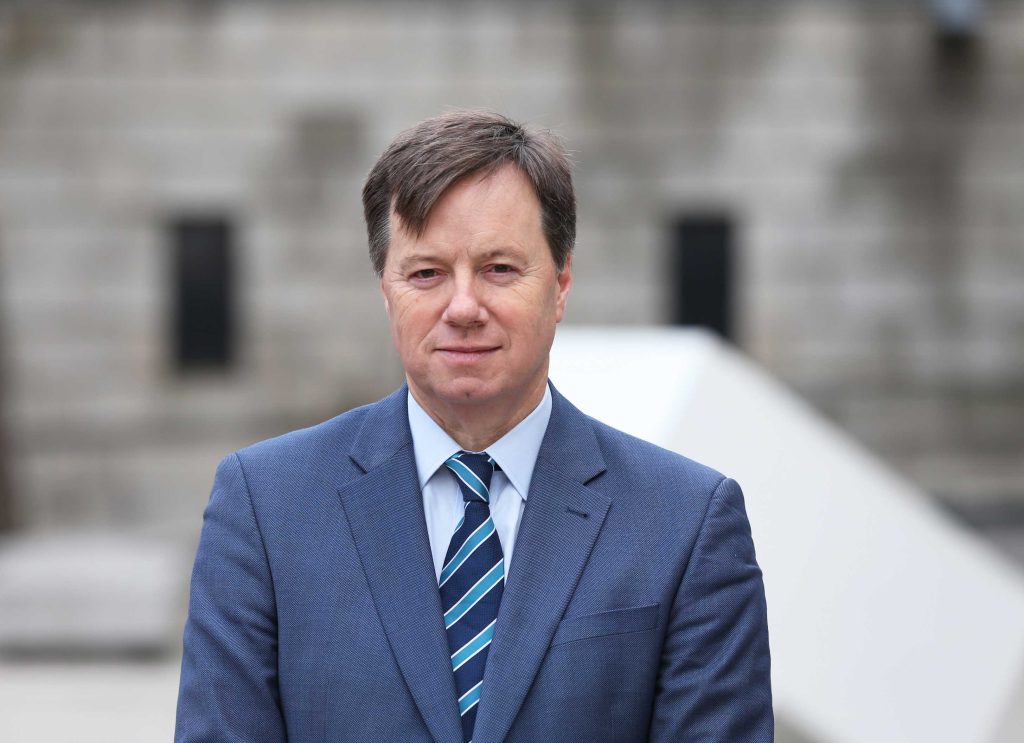
The centralised and siloed nature of our health system had disempowered decision-making close to the patient and made it difficult to plan and deliver joined-up services to patients and clients, Mr. Leo Kearns, Chair of the Health Regions Advisory Group and Chief Executive of the Medical Council, told a HMI East Regional Seminar in June. Maureen Browne reports
He said the implementation of the new regional structures was a real opportunity to address some of these fundamental issues. “The new Health Regions will not, of course, solve all our problems, many of which we share with health systems all over the world. But they certainly can help us to do things better, and in particular to allow us to take a much more co- ordinated and locally driven approach to care planning and delivery.
“When we last met at a HMI seminar in November, the biggest question in my mind was about leadership. Significant change of this nature requires strong leadership. With the appointment of the new CEO of the HSE, Bernard Gloster, there is a sense of clarity about the direction in which we are going, and why. At its core, the move towards regional areas is to enable a more integrated, population and patient-centred approach to service planning and delivery.”
Mr. Kearns said implementing the regional health areas required change at local, regional and national level. “There is now an understanding that the centre of the HSE also needs to change in parallel with the implementation of the regions, with a move to a more national and strategic role; while the regions take on responsibility for the co-ordination and delivery of care for their population.
“We should avoid the word autonomy – not many of us live in a truly autonomous fashion and, in a connected world, nor should we. Rather than pursuing autonomy, we should endeavour to implement good governance. This means being clear about who is responsible and for what, having all the devolved authority necessary to deliver on that responsibility and then being accountable for doing so. Good governance begins from the ground up, from where care and service is provided to patients and clients. This will require real transformation, as it will challenge all of us involved in the health service to think and to behave differently, to let some things go, and to take on new ways of working, and indeed new responsibilities. “We also need to understand that this change does not just involve the HSE as a single organisation. The health service is made up of multiple organisations and stakeholders, all of which are essential to the service, so we must think about reform of the health system, not just reform of the HSE, when implementing regional areas. “Serious consideration must be given to the formal and informal arrangements that need to be in place to enable those different organisations to work in and across integrated care pathways and across governance arrangements. There will, of course be situations where national organisations may have a single SLA but deliver services locally in more than one region.
In such cases, there should still be accountability at local and regional level for any services provided within the region.” Looking at how the centre should set itself up to interact effectively with the regions, Mr. Kearns said that work was ongoing within the HSE to define this, but broadly there was a need for the centre to take a lead in relation to national strategy and frameworks. The national cancer strategy was an example of this. There were national frameworks for pay and procurement, for example. The centre also had to play a significant role in ensuring the regions were accountable for delivering against their responsibilities. Regions should guard against becoming centralised and hierarchical themselves, and so need to establish good governance frameworks within the regions to ensure that joined-up care can be planned and delivered across community, primary care, specialist and acute services.
There should be support for informal and formal networks at a very local level, to enable those working in different sectors to form relationships, meet more regularly and to work together to solve problems. “This is all really important, as solutions to problems often lie closest to the frontline. We are very fortunate to have very talented and hugely committed people working at all levels and right across our health system; and I believe that they will feel positive about a change that will allow them to provide a better experience for patients and for staff”

Mr. Kearns commended Mr. Liam Woods, the Implementation Lead for Regions for the ongoing work in the HSE and the depth of this work in the last six months. “This is a very big change and needs to be supported in a way that acknowledges this significant scale. It will require continuous and extensive engagement and communication with stakeholders across the system. This is an opportunity to set the health service on a different path for the future, and all of us have a role to play in that.”
Mr. Liam Woods, the Implementation Lead for the six new Health Regions, who is working with HSE CEO, Mr. Bernard Gloster in terms of overseeing their implementation said there would be ongoing communications about decisions coming up and being made.
“We need to build trust with staff, service users and patients and with the wider sectors engaged with us. We need to recognise what this kind of change will mean, that the six regions will have to be involved in changing the work and that the work the incoming HSE Regional Executive Officers (REOs) will have to do will be extensive.
He said many of the tools and mechanisms that would be required were already there in HSELand. They had also signed up with the unions collectively for the use of their frameworks.
Introducing the speakers, Mellany McLoone, HMI Council Member and Chief Officer HSE Dublin North City and County said the purpose of the meeting was to give people an update on what had happened since they had last had a seminar on the topic last November.
Dr. Valerie Twomey HMI Member and Head of Psychology Tallaght University Hospital, chaired the seminar and Mr. Raymond West moderated the questions. The meeting was sponsored by GSK.

